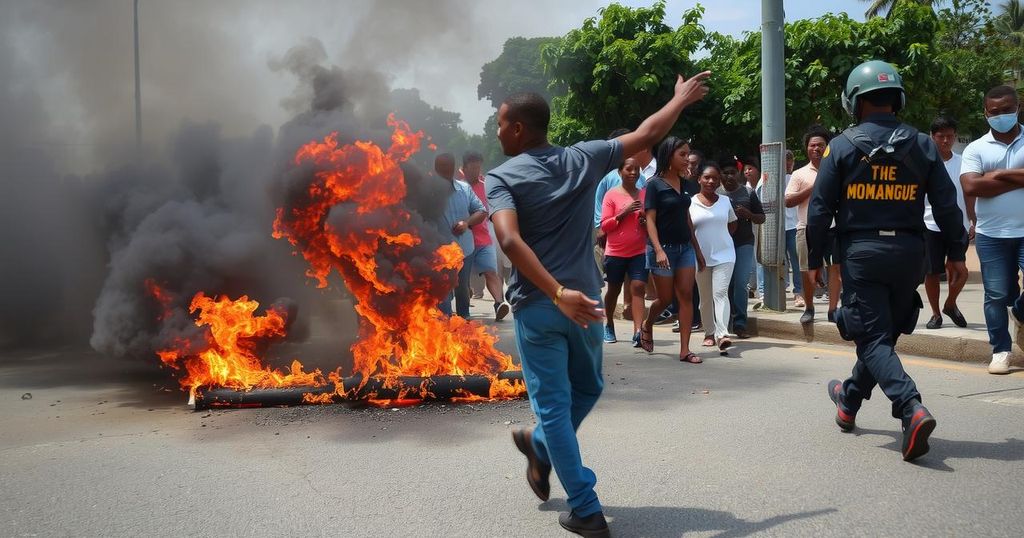Mozambique’s Post-Election Challenges: Navigating Unrest and Reconciliation

Mozambique’s President-elect Daniel Chapo is preparing to tackle the challenges of a post-election crisis marked by allegations of fraud. His victory, confirmed by the Constitutional Council, has sparked unrest from opposition supporters. Chapo aims to promote dialogue and reconciliation; however, this could create discord within his party and complicate governance amid rising protests against the electoral process.
Mozambique’s newly elected President, Daniel Chapo, is poised to confront significant challenges as he seeks to navigate the ongoing post-election crisis in the nation. This situation threatens to disrupt not only economic activities but also regional trade, intensifying the need for President Chapo to seek compromise with opposition leader Venancio Mondlane. However, such a conciliatory approach could ignite factional disputes within the ruling FRELIMO party itself.
The Constitutional Council of Mozambique confirmed on December 23 that Daniel Chapo, representing the ruling FRELIMO party, emerged victorious in the presidential elections that were held on October 9. The election was marred by controversy, with many, including Mondlane and several Western observers, alleging that the process was significantly compromised. In light of these events, Chapo has expressed intentions to initiate a dialogue and reconciliation process after his inauguration on January 15, aiming to restore stability in the nation.
Nevertheless, the announcement of Chapo’s victory has precipitated renewed unrest, as supporters of Venancio Mondlane promptly mobilized for demonstrations in response to what they perceive as a legitimization of unfair electoral practices. The protests highlight the deep divisions within the country and the potential volatility of the political landscape as Chapo attempts to govern amid widespread discontent and calls for accountability from the opposition.
The political landscape in Mozambique has remained contentious and unstable, especially following the recent general elections. President-elect Daniel Chapo’s victory from the FRELIMO party has been met with opposition claims of electoral fraud, underscoring the fragility of the government’s legitimacy. With the constitutional endorsement of his presidency coinciding with escalating protests, Chapo’s governance strategies will be pivotal in addressing both internal dissent and broader economic repercussions. The interplay between the ruling party and opposition demands influences the overall political dynamics, necessitating a nuanced approach from the newly appointed president.
In conclusion, President Daniel Chapo’s ascent to leadership occurs at a critical moment characterized by political unrest and economic uncertainty in Mozambique. His ability to forge a path towards reconciliation with opposition factions may determine the nation’s stability and his political longevity. However, this endeavor must be undertaken cautiously to prevent exacerbating intra-party conflicts within FRELIMO. As the nation stands on the precipice of potential turmoil, the coming months will reveal the effectiveness of Chapo’s strategies in addressing the ongoing crisis and restoring faith in the political process.
Original Source: worldview.stratfor.com








